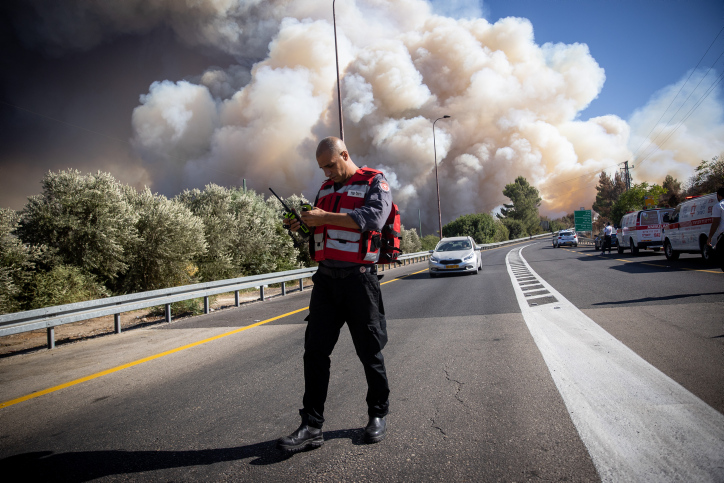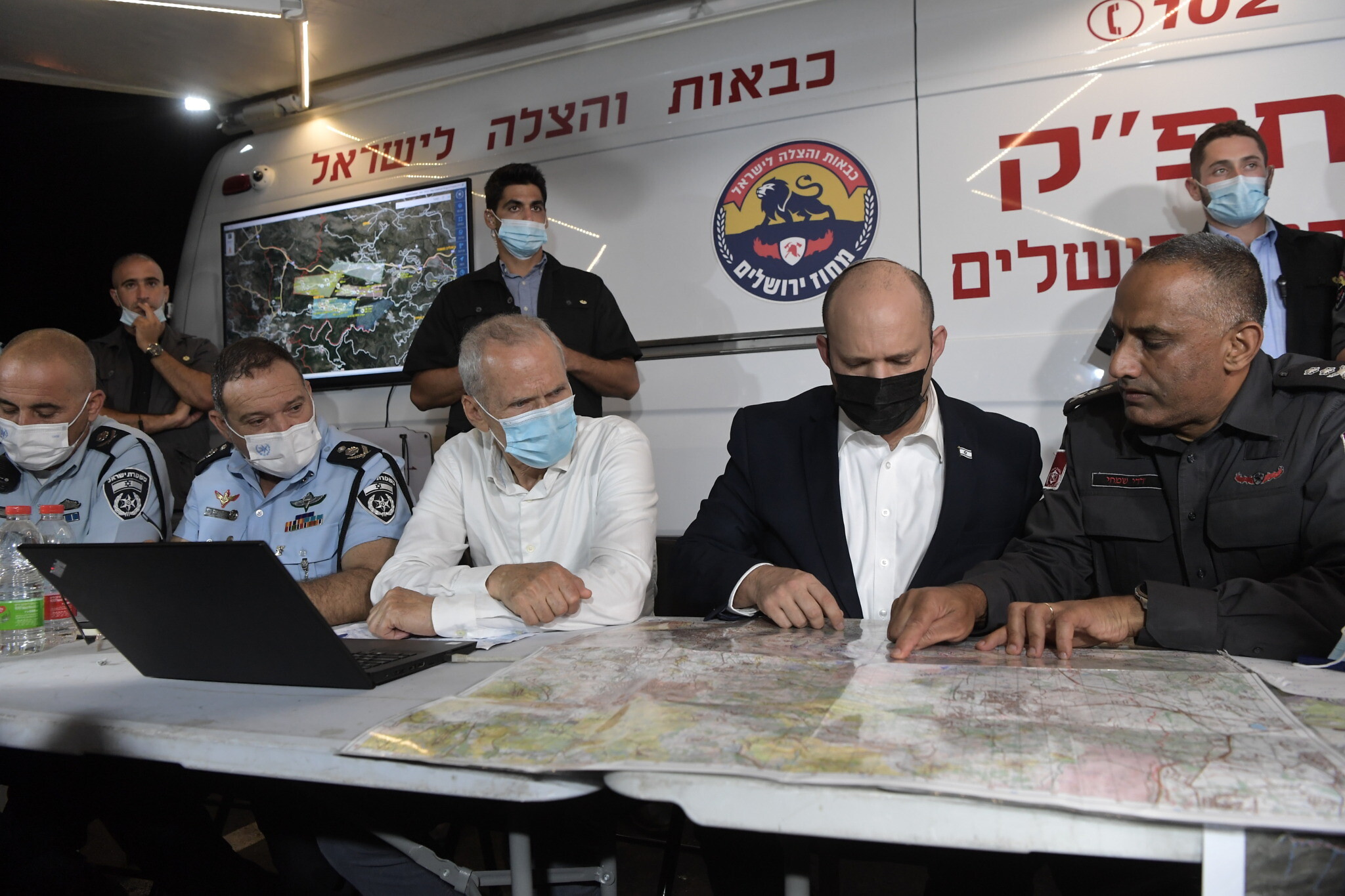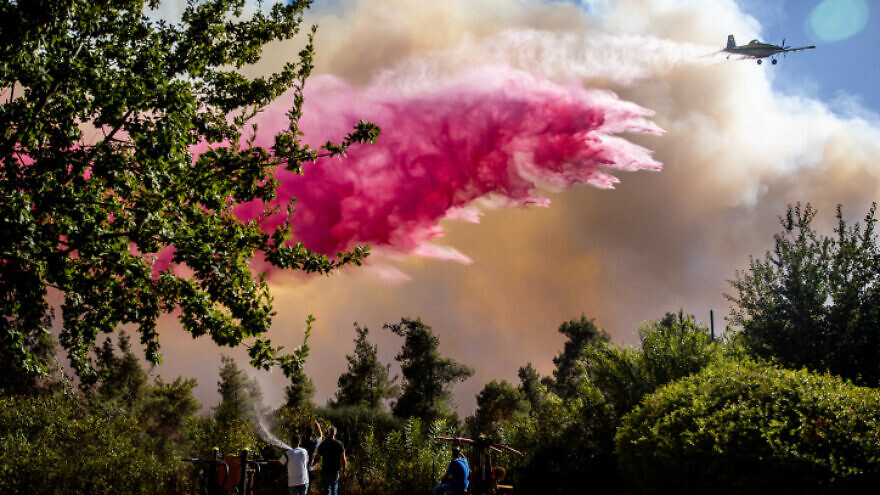The massive blaze that erupted in the Jerusalem hills on Sunday continued to rage on Monday morning, with at least five hotspots still active, according to the Israel Fire and Rescue Service.
The flames have so far eaten away at over 4,200 acres (6.5 square miles), forcing over 10,000 people to evacuate their homes in six communities west of the Jerusalem: Beit Meir, Ksalon, Ramat Raziel, Shoresh, Sho’eva, and Givat Ye’arim.
“There are still five active fires, but it is not endangering any residents for now. We’re focusing on aid efforts for emergency services and for families evacuated from their homes,” he said.

Fire department officials said the fire was being investigated as arson, adding that the flames were fueled by the high temperatures and strong winds in the area.
As of Monday morning, 70 squads from the Jerusalem Fire Department, as well as firefighters from units nationwide, were battling the flames.
On Sunday evening, Israeli Defense Minister Benny Gantz ordered the military to assist firefighters in battling the blaze. Home Front Command firefighters and search-and-rescue teams, as well Unit 669, the military’s elite airborne rescue unit, subsequently deployed to the affected area.
The Home Front Command’s situation room was coordinating the joint effort, the IDF said.
Jerusalem District Fire Commander Nissim Twito and the capital’s police chief, Doron Turgeman, held a situation assessment on-site on Monday.
Twito noted that efforts were currently focused on getting the existing hotspots under control and preventing new ones from forming. Turgeman said that overnight, police forces patrolled areas cleared by the fire department to ensure no looting took place in areas where residents were forced to flee the blaze.

Israeli Prime Minister Naftali Bennett paused Sunday’s Cabinet meeting to personally monitor the developments. Late on Sunday night, Bennett arrived at a command and control center set up on-site to oversee the developments.
“At this time, we appear to be heading in a positive direction in terms of controlling the flames,” Bennett said shortly after 11 p.m. “But it must be said, it’s not over until it’s over.”

























